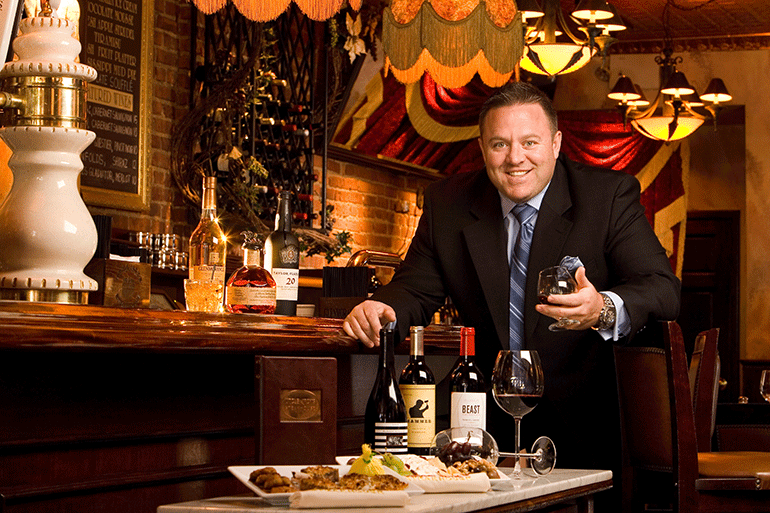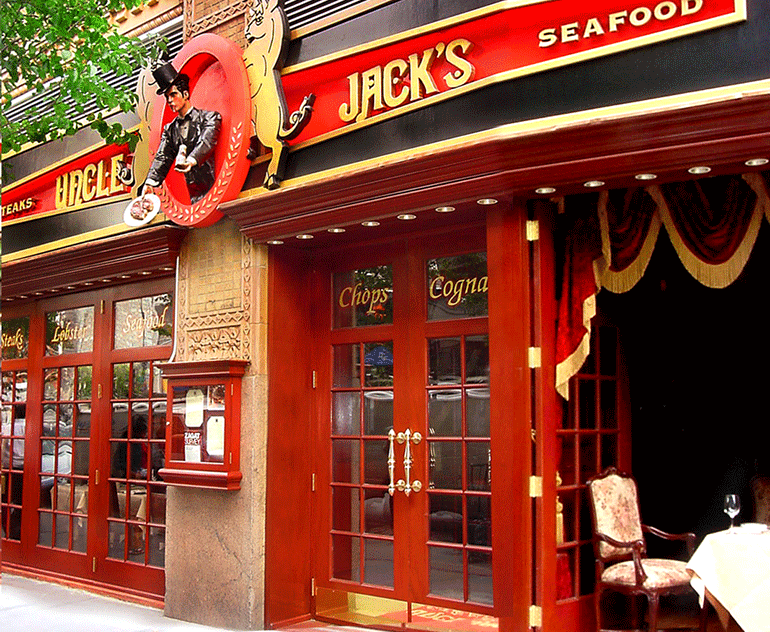Restaurant operators are wrestling with minimum wage increases that are being phased in many parts of the nation.
As the calendar turned to 2017, minimum wage levels rose in 19 states and a number of local jurisdictions, and more hikes will come in the next two years as part of phased-in increases passed by lawmakers. The increased salary costs have made operators to look at labor management more critically than ever.
Willie Degel, CEO of New Old World Restaurant Hospitality Group in New York, said small operators are running out of ways to absorb or mitigate the increased labor costs.
In metropolitan New York, where Degel operates three Uncle Jack’s Steakhouse restaurants as well as Jack’s Shack and Uncle Jack’s Steak Sandwich Shop the minimum wage increased Dec. 31 to $11 an hour in New York City, and it will rise to $13 an hour at the end of this year.
“When the dishwasher goes to $11 an hour, the broiler guy is going to want $25 an hour,” Degel said. “How can you afford this? The consumer is not ready to pay the prices for this.”
When the minimum wage rose from $5 an hour to $7.50 an hour in 2016, the new rules cost $350,000 a year extra in front-of-house labor without overtime, Degel said. The year before, Degel said stations at his steakhouses would run a captain, waiter, busboy and food runner.
“I fired all the busboys in the entire company,” he said. “The best busboys got moved up to waiters. We move people up. I did away with one whole position.”
However, that wasn’t enough, Degel said. “That was like putting a Band-Aid on a 12-inch cut.”

The power of cross training
Chris Tripoli, founder and president of Houston-based A La Carte Foodservice Consulting Group, said labor costs remains a top concern for restaurant operators, which were already under pressure without minimum wage hikes above the $7.25 an hour federal requirement.
“In most states, restaurant owners are finding they can’t start anyone at less than $8 to $8.50 an hour anyway,” Tripoli said. “That just isn’t available.”
To deal with wage increase, Tripoli said he recommends operators cross-train employees, especially in back-of-house positions.
“We’ve been going to existing staff and improve their value,” Tripoli said. “We cross-train them so they can work in more than one position. That makes them more valuable, and we can justify a 50-cent an hour raise. That eliminates some overtime in some positions. You can also save in turnover. That especially works well with line cooks that can cover several positions, and it helps with dish people who can do prep work.”
The result, he added, is a schedule with fewer people but they are working more.
Try a two-week schedule
On way managers can better manage the total number of labor dollars they might have, Tripoli said, is switching to a two-week from a one-week schedule.
“It helps for better planning,” he said. A two-week period produces fewer changes in the schedule and reduces shift switching. “With fewer switches, you can prevent some overtime,” he said. “We are able to plan better and have fewer curve balls.”
Employees welcome the ability plan, he added, especially when shifts are posted on the smartphone applications.
Shift pay periods midweek
By moving the payroll schedule to begin in the middle of the week, Tripoli said the busiest days of Friday through Sunday are covered without overtime.
“When a $14-an-hour employee breaks overtime and moves to $21 an hour, you just can’t afford that,” he said.
“If you start with Sunday or Monday, you’ve had a couple changes — either someone is out sick or you have to add staff for your stronger days,” he said. “By moving schedules to Wednesday to Tuesday, you aren’t breaking overtime for the busy weekend periods. If you are going to break into overtime, it’s normally during your slower periods, like a Monday or Tuesday night. It’s so much easier to cut back then.”
Educate your team in-house
In-house training programs can help develop and retain employees, Tripoli said.
“If you want to manage your labor, it isn’t about being good to go, it’s about good to stay,” he said. “Are the good ones going to stay. And they seem to stay where they are involved. They feel like they are more valuable.”
Tripoli suggested changing to store meetings to “staff improvement meetings.” Topics could include those of improving efficiency in the kitchen or enhancing the service model in the dining room. “You can bring in purveyors to talk about their products,” Tripoli said. “People feel more treasured and more important and they stay. They feel good about staying.”

Communicate changes clearly
Dean Small, founder and managing partner of Synergy Restaurant Consultants in Laguna Nigel, Calif., said restaurant operators should also update employee handbooks and policy manuals to outline overtime standards.
“Businesses have to pay overtime pay to any nonexempt employee who works more than 40 hours in a week,” Small said. “However, the operation can limit the financial risk by implementing a policy that requires supervisor approval before working any overtime hours. Choose a policy that appropriately assesses financial considerations and employee workload.”
Small said companies would also benefit by communicating to employees how any new wage policies will affect them, as that may affect the perception of their roles within the organization.
“Many employees may be disgruntled with the prospect of ‘clocking in and out,’” Small said. “Keep in mind that how you communicate the organizational changes is just as critical as what you are communicating.”
Consider menu price adjustments
Some adjustments in pricing are accepted, Tripoli said. “Chains are a good place to look,” he said. “McDonald’s has taught people that the Dollar Menu is a thing of the past with the 2 for $2 promo.”
“Pricing seems to be helpful in the healthy sectors like fast-casual,” he said. “What is not acceptable are those with huge fixed costs and lost the sense of value.”
Degel of Uncle Jack’s said he’s tapped payroll companies for advice and tools. “You have to do more with less,” he said. “You have to simplify your menu. Your kitchen has to be cross-trained so everybody can do everything.”
He sees his last option as going to a “hospitality included” model.
“I’m doing all these things to protect me and maximize every penny and every dollar,” he said. “You know what I’m saying to myself every day? ‘I must be out of my mind.’”




